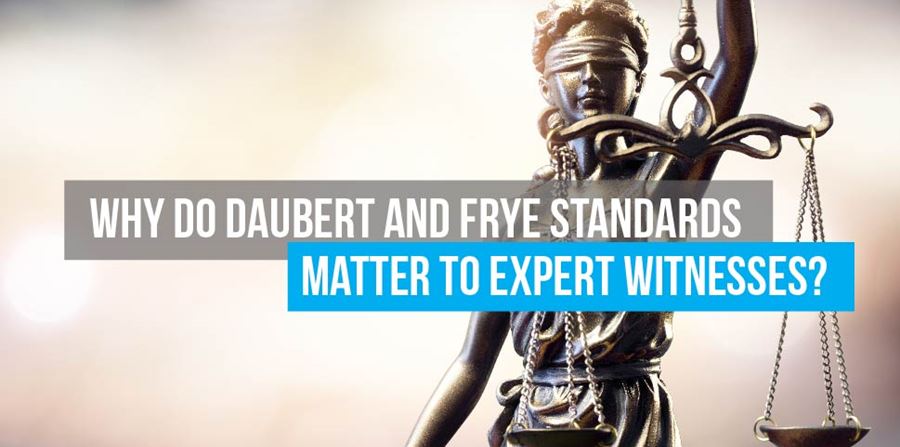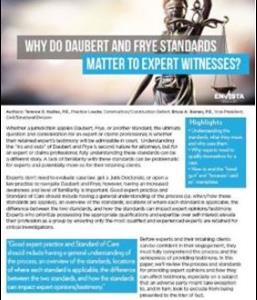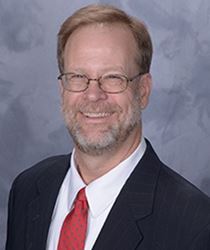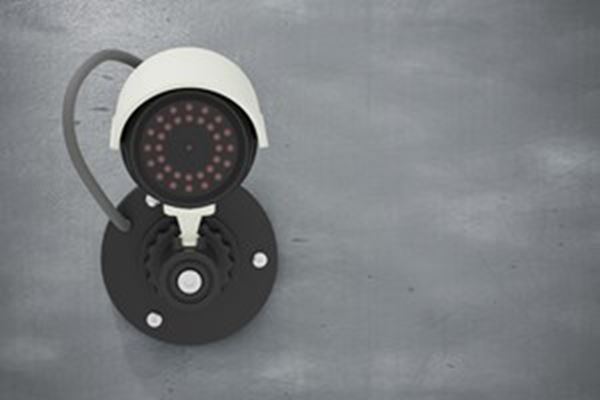Why Daubert and Frye Standards Matter to Expert Witnesses

|
Whether a jurisdiction applies Daubert, Frye, or another standard, the ultimate question for an expert or claims professional, is whether their retained expert's testimony will be admissible in court. Understanding the "ins and outs" of Daubert and Frye is second nature for attorneys, but for an expert or claims professional, fully understanding these standards can be a different story. And moreover, a lack of familiarity with these standards can not only prove to be problematic for experts, but also, and potentially more so, to the client. |
We discuss this in more detail in our recent whitepaper.
An Overview of the StandardsIn short, the Daubert Standard is used by a judge to determine if the expert's methodology was scientifically valid. The Frye Standard concludes whether or not the method used to determine opinion is generally accepted by experts in the particular field. |
 |
The responsibility (or Standard of Care) to provide expert opinions and testimony lies with one person: the expert.
If operating outside of this mindset, experts might find themselves labeled a "hired gun," continuing the "because I said so" mentality instead of allowing only the most qualified experts to provide testimony. Experts that garner the most respect and trustworthiness in their respective industries are those that recognize their strengths, weaknesses, and most importantly, are transparent to these attributes. These experts are the most effective as they stay within their 'sandbox', elevating expert witnesses collectively as a group and as a profession.
Download our paper to read more and learn:
- What each method means and what states require which standard.
- Why experts need to qualify themselves for a case.
- How experts can end the "hired gun" mentality
Our experts are ready to help.




